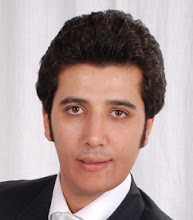Ahmad Tavakoli: Accusations of Espionage Were Lies

While the recent apology offered by Tehran Majlis representative Ahmad Tavakoli to Hossein Mousavian, Iran’s former nuclear negotiator has been received warmly, the president’s office asked Tavakoli to announce his repentance for his second gaff, a reference to the latter’s apology.
Tavakoli is a member of Iran’s parliament and the head of the Majlis' research center operating a website under the name of Alef. He recently made a public statement that the report on the website against Mousavian (who had been accused of espionage for Britain by the government in connection with the nuclear dossier) was “complete fabricated” and he apologized to himself and Tavakoli’s family. In response, Mousavian wrote him a letter in which he wrote, “Until now I had remained silent in the interests of the country and the regime, and I want to continue this. I am confident that after studying relevant documents and speaking with appropriate officials now understand the secret of my silence.”
In his letter Tavakoli had explained that, “Almost all the news in this regard were either direct quotes from state officials, such as the president, the administration spokesperson, minister of intelligence or the spokesperson for the foreign relations committee and the national security committee of the Majlis, or other sources. The defense attorneys for the suspect had asserted that most of the charges against their client that appeared in the media were not factual and neither the ministry of intelligence nor the attorney general had not reported them in their documents.”
The Response of the Presidential Office
Following the news of the apology, allies of the ninth administration have said there is another story behind the regret. The president’s office too issued a statement protesting Tavakoli’s letter and even called asked him to repent his new mistake, a reference to the apology letter. This statement was published by Fars News Agency the president’s office wrote, “If a new coalition is forming in the process of new political arrangements, mistakes committed in the past should not be attributed to the president, and so it is necessary that you repent your new mistake.”
Quoting this news, Shahab News website wrote that “The presidential offices’ statement implicitly claimed that Tavakoli’s apology from seyed Hossein Mousavian and his insistence on the error in the media accusations brought against Mousavian were because of the new political coalitions (among conservatists opposing the government) taking place.”
But the publication of this statement which indicates the anger of the president’s office at Tavakoli, took place while some website affiliated to the government such as Melat News had published news reports apologizing their false news reports about the false accusations against Mousavian, and said he was the victim of political games.
Along with Hassan Rowhani, Mousavian was a key negotiator on Iran’s nuclear team. He gradually lost his position as Larijani was appointed as the new chief negotiator and Ahmadinejad came to the national political front. He was arrested after President Ahmadinejad and his minister of intelligence publicly accused him last year of being a spy, having relations with foreign embassies in Tehran and other security issues and sent to prison. He was released after 10 days and the payment of his bail, as the administration publicly declared its displeasure with his release. And when some talk was heard of a pardon for Mousavian, Ahmadinejad warned the judiciary in a speech that if it went ahead with its pardon, he would publish certain documents. The chief executive never pursued on his threat and the judiciary threw out the espionage charges against him, condemning him to 2 years of suspended prison and ban from any diplomatic position in the government.


No comments:
Post a Comment